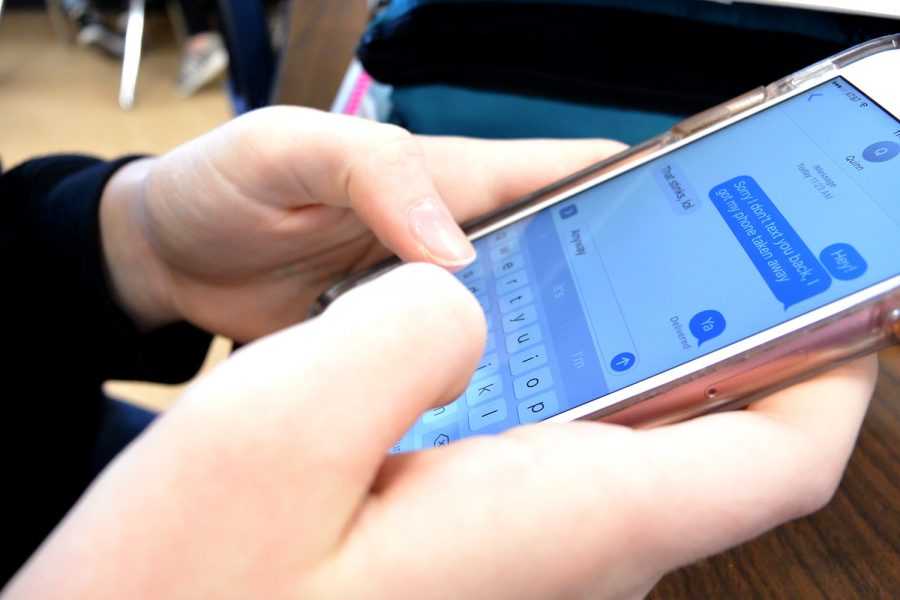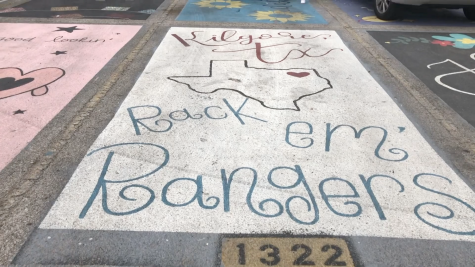Phone Policy Enforcement Brings an Uproar
More stories from Kathryn T.
More stories from Anna H.
The Gorzycki phone policy has always been a set guideline. Recently, this rule has become more enforced. Now, students cannot have their phones or earbuds seen in hallways, bathrooms, the cafeteria, or classrooms. Teachers who allow cell phones inside their classroom have a BYOD (bring your own device) sign on their door. Even if you are not on your device, there is still a risk it can still be taken up if it is seen by a faculty member. Many students are opposed of this new enforcement and believe that it interferes with their learning and success.
“Sometimes it [the enforcement] limits me from using my phone inside the classroom for educational purposes,” Eighth grade Student Council president Josh O. said. “I feel it’s a setback for me and my classmates on research and it puts me behind on some projects.”
Though Josh is the Student Council president, he does not have a say in the policy. Yet, students have a few things they would change.
“I would change the fact that teachers can’t see our phones,” seventh grader Sloane D. said. “If we are not doing anything on them, than why would you take them up?”
“If you’re in the hallways and your phone is seen, I think it should be okay,” seventh grader Kayla S. said. “If is a distraction and your on it, it’s not okay. Passing period should be five free minutes of your life and I think we should be able to have it [our phones] out then.”
Seventh grade science teacher William Wieners allows devices in his classroom, but still thinks the policy is a necessity for the discipline of the school.
“I completely agree that phones should not be allowed in the bathrooms, hallways, and the cafeteria,” Wieners said. “But, phones and devices are a great learning tool. I want to use as many tools as possible in my classroom. However, the rule has been set from the start of the year. We, [the faculty] don’t want to see cell phones. The purpose of the phone is to be an educational tool, not a media or communication outlet.”
Some students, like Josh, don’t believe strongly one way or another.
“The policy is both helpful and hurtful,” Josh said. ”I feel like teachers should only monitor the kids who don’t use their phones appropriately, and, for the kids that do, they should be more lenient.”
If your device is confiscated, you must wait 48 hours and pay a $15 fee to get it back. Many teachers have only had to confiscate phones in the hallways. But, some students have had their phone confiscated in the classroom before.
“On the last day of school, someone texted me something, I showed it to my friend and a teacher took my phone away,” Kayla said.
For many, the policy arises extra concern and planning for them.
“I have to make sure everything is away at all times or else I will get my phone confiscated.” Sixth grader Fionella C. said. “I sometimes don’t know where to put it and I have to think ahead. ”
While some believe the policy is too harsh, other think it fits the twenty-first century problems we face today.
“I believe that the teachers think it’s fair and I can’t say I blame them,” Josh said.










